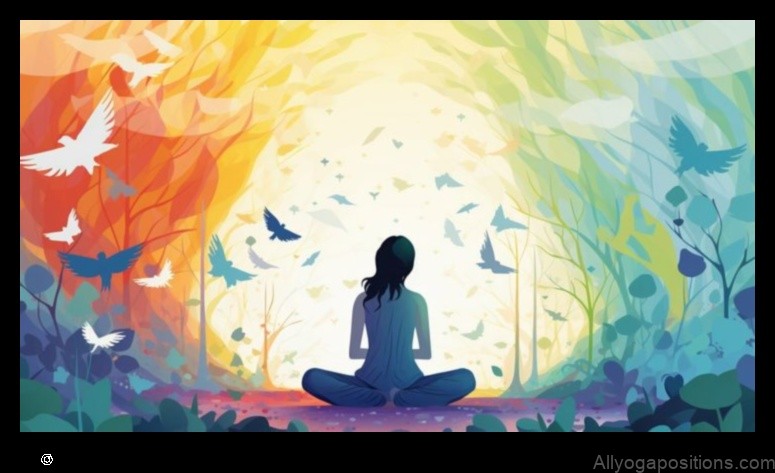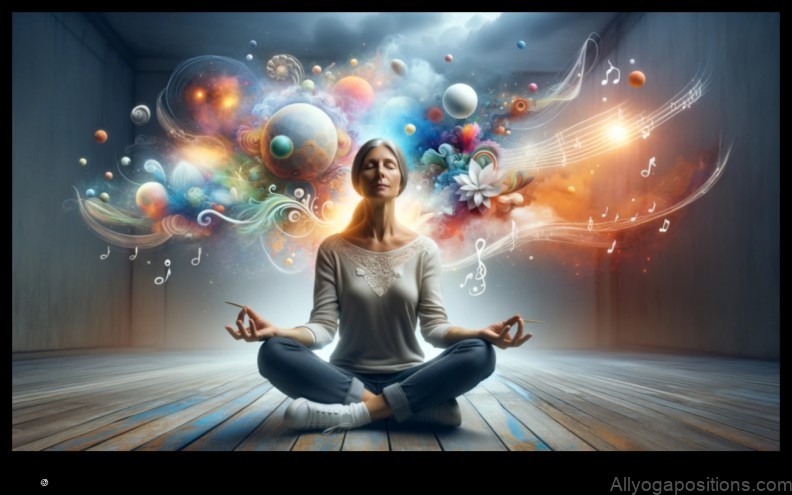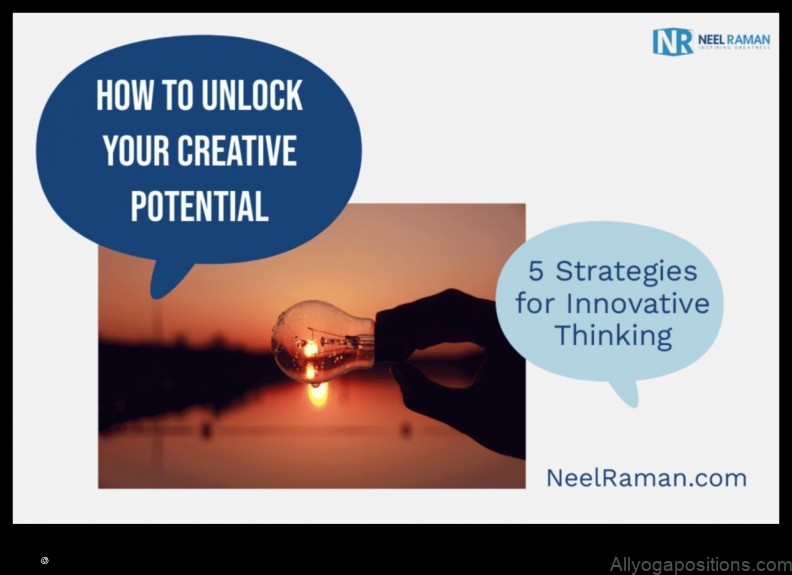
I. Introduction
Meditation is a practice that has been shown to have a number of benefits for both physical and mental health. In recent years, there has been increasing interest in the potential benefits of meditation for creativity.
This article will explore the relationship between meditation and creativity, and discuss the benefits of meditation for creative people. We will also provide tips on how to meditate for creativity, and share examples of creative people who meditate.

II. What is meditation?
Meditation is a practice that involves focusing the mind on a single object, thought, or activity. There are many different types of meditation, but all share the common goal of bringing the mind to a state of calm and awareness.
Meditation has been shown to have a number of benefits for both physical and mental health, including reducing stress, improving mood, and boosting creativity.
III. What is creativity?
Creativity is the ability to come up with new ideas and solutions. It is a process that involves divergent thinking, which is the ability to generate multiple ideas, and convergent thinking, which is the ability to select the best idea from a number of possibilities.
Creativity is essential for a number of different professions, including art, design, and science. It is also important for everyday life, as it allows us to solve problems and come up with new solutions.
IV. How do meditation and creativity relate?
There is a growing body of research that suggests that meditation can help to improve creativity. Meditation has been shown to increase divergent thinking, reduce stress, and improve mood. These factors can all contribute to increased creativity.
In addition, meditation can help to improve focus and attention, which are also important for creativity. When we are able to focus our attention on a single task, we are more likely to come up with new ideas.
V. Benefits of meditation for creativity
Meditation has a number of benefits for creativity, including:
- Increased divergent thinking
- Reduced stress
- Improved mood
- Improved focus and attention
- Increased self-awareness
VI. How to meditate for creativity
There are many different ways to meditate for creativity. Here are a few tips to get you started:
- Find a quiet place where you won’t be disturbed.
- Sit in a comfortable position and close your eyes.
- Focus on your breath.
- When your mind wanders, gently bring your attention back to your breath.
- Continue to meditate for as long as you like.
There are many creative people who meditate, including:
- Steve Jobs
- J.K. Rowling
- David Lynch
- Lady Gaga
- Elon Musk
There are a number of common myths about meditation and creativity, including:
- Meditation makes you boring.
- Meditation is only for religious people.
- Meditation is too difficult to learn.
- Meditation is not for creative people.
Meditation is a powerful tool that can help to improve creativity. If you are looking for ways to boost your creativity, I encourage you to give meditation a try.
Q: How long does it take to see results from meditation?
A: The amount of time it takes
| Topic | Feature |
|---|---|
| Creativity | The ability to generate new ideas or solutions |
| Meditation | A practice that involves focusing the mind |
| Mindfulness | A state of awareness of the present moment |
| Unlocking creativity | The process of enabling creativity |
| Creative process | The steps involved in creating something new |
II. What is meditation?
Meditation is a practice that involves focusing the mind on a particular object, thought, or activity. It can be done sitting, standing, or lying down. There are many different types of meditation, but all share the goal of bringing the mind to a state of calm and clarity.
What is meditation?
Meditation is a practice that involves focusing the mind on a single object, thought, or activity. It can be done in a variety of settings, and there are many different techniques that can be used. Meditation has been shown to have a number of benefits for both physical and mental health, including reducing stress, improving focus, and boosting creativity.

4. How do meditation and creativity relate?
There is a growing body of research that suggests that meditation can have a positive impact on creativity. A 2012 study by the University of California, Berkeley found that meditation can increase creativity by helping people to focus their attention, reduce stress, and open themselves up to new ideas.
Another study, published in the journal Neuroscience in 2013, found that meditation can increase activity in the brain’s prefrontal cortex, which is associated with creativity. The study also found that meditation can help to improve people’s ability to think outside the box and come up with new ideas.
In addition to these studies, there are many anecdotal reports from creative people who say that meditation has helped them to improve their creativity. For example, the musician David Lynch has said that meditation has helped him to come up with new ideas for songs and films.
Overall, the research suggests that meditation can be a helpful tool for people who want to improve their creativity. It can help them to focus their attention, reduce stress, and open themselves up to new ideas.
Benefits of meditation for creativity
Meditation has been shown to have a number of benefits for creativity, including:
- Increased focus and attention
- Reduced stress and anxiety
- Improved mood
- Enhanced problem-solving skills
- Increased divergent thinking
- Enhanced imagination
These benefits can help creative people to be more productive and to come up with more creative ideas.
VI. How to meditate for creativity
There are many different ways to meditate, and not all of them will be equally effective for everyone. However, there are some general principles that can help you to meditate for creativity.
First, it is important to find a quiet place where you will not be disturbed. You should also make sure that you are comfortable and that you have enough time to meditate.
Once you are settled, close your eyes and focus on your breath. Breathe in slowly and deeply, and let your breath out slowly and completely. As you breathe, try to clear your mind of all thoughts.
If you find your mind wandering, gently bring your attention back to your breath. Continue to do this for as long as you like.
When you are finished meditating, take a few moments to relax and enjoy the feeling of peace and tranquility.
VII. Examples of creative people who meditate
There are many well-known creative people who have spoken about the benefits of meditation for their work. Some examples include:
- Vincent van Gogh
- Pablo Picasso
- David Lynch
- J.K. Rowling
- Lady Gaga
- Ellen DeGeneres
These artists and thinkers have all found that meditation helps them to be more creative, focused, and productive. They have also said that meditation helps them to deal with stress, anxiety, and depression, which can all be obstacles to creativity.
If you are a creative person who is looking for ways to improve your work, meditation may be a helpful tool for you. There is no one-size-fits-all approach to meditation, so you will need to experiment with different techniques and find what works best for you.
However, if you are consistent with your practice, you may find that meditation can help you to unlock your creativity and produce your best work.
Common myths about meditation and creativity
There are a number of common myths about meditation and creativity that can prevent people from trying it out. Here are some of the most common myths, and why they’re not true:
- Meditation makes you passive. In reality, meditation can actually help you to be more creative by increasing your focus and attention.
- Meditation is only for religious people. Meditation is not a religious practice, and it can be beneficial for people of all faiths (or no faith).
- Meditation is too difficult. Meditation is actually very simple, and anyone can learn to do it.
- Meditation is boring. Meditation can actually be very enjoyable, and it can be a great way to relax and de-stress.
If you’re interested in learning more about how meditation can help you with your creativity, there are a number of resources available online and in libraries. You can also find many different types of meditation classes in your local community.
IX. Conclusion
In this article, we explored the relationship between meditation and creativity. We discussed the benefits of meditation for creativity, how to meditate for creativity, and examples of creative people who meditate. We also debunked some common myths about meditation and creativity.
Overall, the evidence suggests that meditation can be a helpful tool for unlocking creativity. It can help you to relax, focus, and clear your mind, all of which are essential for creative thinking. If you’re looking to boost your creativity, I encourage you to give meditation a try.
Q: What is meditation?
A: Meditation is a practice that involves focusing the mind on a single point of attention, such as the breath or a mantra. It can be done sitting, standing, or lying down.
Q: What is creativity?
A: Creativity is the ability to generate new ideas or solutions. It is often associated with artistic expression, but it can also be used in business, science, and other fields.
Q: How do meditation and creativity relate?
A: Meditation can help to improve creativity by reducing stress, increasing focus, and fostering a sense of openness and curiosity.
Table of Contents
Maybe You Like Them Too
- Empowerment Euphoria Yoga for Inner Strength Find Your Inner Strength and Shine Through Yoga
- Unlock Your Inner Strength with Yoga
- Empower Your Flow Yoga for Strength and Flexibility
- Yoga for Anxiety 5 Calming Practices to Help You Relax
- Balancing Breath Yoga for EquanimityFind your center and achieve inner peace with this simple breathing technique.
